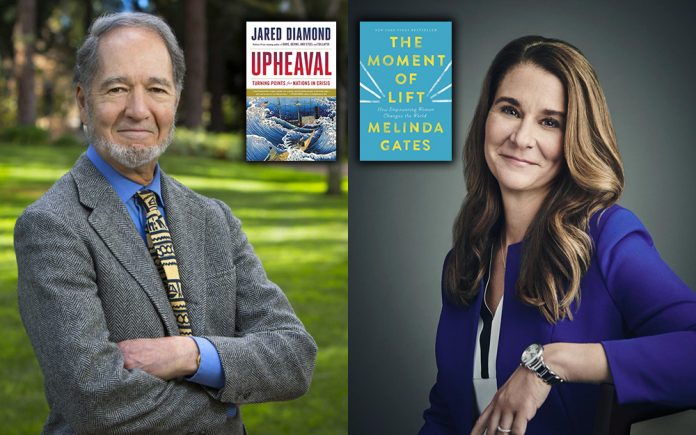
By Heidi Simmons
Dear reader, I know you would like to read more. I hear this all the time! I understand. I wish I had more time to read and I’m a book reviewer! With so many books to choose from, it’s hard to know what will keep you turning the pages. That is why I write this column.
I am here to expose you to popular and acclaimed authors, as well as overlooked writers and new voices. I crave a reading experience that is not only exciting, intriguing and entertaining but also transportive – we all do! That’s what makes reading such an exceptional experience.
Like a grade-school book report, I share with you the plot and themes, and then tell you what I liked best. It is my goal to make this column simple and clear enough to inform you about the story and author’s execution and maybe even intent. This way, you can decide if it’s something you want to read for yourself, or so you can discuss the book intelligently at a cocktail party.
During 2019, I read more fiction than non-fiction (almost two to one), but as I look back, it is the non-fiction that still resonates with me.
Here are what I believe are the two most important books published in 2019:
The Moment of Lift: How empowering Women Changes the World by Melinda Gates (Flatiron Books, 237 pages)
The author is the spouse of Microsoft co-founder and billionaire Bill Gates. In her own right, she is a major force on this planet to improve the lives of women, which in turn creates healthy families, stronger communities and more stable economies around the world.
Gates explores ways in which she and her foundation are taking steps to empower women and overcome gender bias – a very challenging quest in a world that lives under patriarchal domination and control.
This book is a bit of a memoir, but mostly it’s a global look at the significant and life-threatening issues that face today’s women as they conceive and raise children, work and contribute to society.
Gates approaches equality as a “state of partnership” where men and women lift one another up and share their gifts, talents, and skills at home and in the workplace.
Each of Gates’ examples and case studies are fascinating. She is a hands-on advocate who first seeks to understand the systemic or inherent cultural problems for women and what specifically hinders their ability to change or influence their own lives for the better.
Even with obstacles that seem overwhelming, Gates and the women she works with have managed to generate small but significant changes. The lessons toward equality are universal.
This is a book both men and women should read. Equality is a global issue and it’s time half the world’s population has equality with an equal say in the future. And, liberated men must advocate for women and support their equality.
Upheaval: Turning Points for Nations in Crisis by Jared Diamond (Little Brown, 502 pages)
History can be a fantastic read, especially when told with clarity and purpose. This is another book that should be read by all who want to better understand what political crises look like, and believe in bringing about a positive global transformation.
The author looks at major crises in six different countries. Each crisis is a fascinating and incredible story of how governments and its people survived a significant ordeal to bring about change.
Pulitzer Prize-winning author Diamond, outlines 12 factors for overcoming crisis, which he adopted and tweaked from the psychologist’s tool kit. (Diamond is married to a psychologist.) What helps an individual get through a crisis can also work for a nation. This connection makes this book work on a deeper level as the reader can see there is hope when a crisis is approached with thoughtfulness, an open-mind and willingness to make constructive modifications.
The accounts in the book often read like thrillers as nations had to confront the crisis and choose whether or not to embark on a process of “selective change” in order to resolve the problem. This look at world history is a fresh and exciting way with lessons that directly apply to many of the issues the world currently faces.
Human beings can do remarkable things when they have to. The examples of governments and people working together for the good of their nation is inspiring. Diamond’s premise is simple: when we review past crises, understand how they came about, and how they were resolved, then we can prevent future crises – but only if we are willing.
* * *
Both these books address significant global challenges – gender equality and environmental collapse. Each author writes with hopefulness that if the populace directly understands and addresses the issues and the circumstances of our most pressing dilemmas, change is achievable.
For all my reviews go to www.coachellavalleyweekly.com, click “Columns,” drop down to “A-B,” and scroll to “Book Reviews.”










































